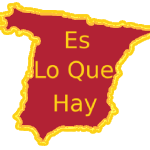Introduction:
The NIE (Número de Identificación de Extranjero) is a unique identification number assigned to foreign individuals in Spain. It is an essential document that holds significant importance in various aspects of life in Spain. Whether you are planning to work, study, or establish residency in the country, obtaining a NIE is a crucial step to navigate the bureaucratic processes and legal requirements.
Obtaining a NIE opens doors to numerous opportunities and rights in Spain. It serves as proof of your legal presence in the country and allows you to engage in activities such as employment, enrolling in educational institutions, opening bank accounts, signing contracts, and fulfilling tax obligations. Without a NIE, it can be challenging to access these privileges and fully integrate into Spanish society.
Understanding the NIE:
The NIE is a unique identification number assigned to foreign individuals in Spain, allowing the government to track and identify non-Spanish residents. It is different from the NIF (Número de Identificación Fiscal), which is a tax identification number issued to Spanish citizens and legal entities. While the NIF is mainly used for tax purposes, the NIE serves as a general identification number for foreigners.
The NIE is required in various situations such as applying for a job, enrolling in educational institutions, purchasing property, starting a business, or accessing social services. It is also necessary for obtaining a residence permit or visa, as it acts as a primary identification document for non-Spanish citizens.
Obtaining a NIE is not only crucial for legal compliance but also for ensuring smooth transactions and interactions with Spanish authorities, employers, and institutions. Having a NIE simplifies administrative procedures, enables you to establish legal status, and grants you access to the rights and benefits that come with being a resident in Spain.
Determine the Reason for Obtaining a NIE
When determining the reason for obtaining a NIE, it is important to understand the specific purpose for which it is required. Whether it is for employment, study, or investment purposes, each situation may have different requirements and procedures. For example, if you plan to work in Spain, you will need a NIE for tax and social security purposes. If you intend to study in Spain, the NIE will be necessary for enrollment in educational institutions. Understanding the purpose will help you gather the correct documentation and navigate the application process more effectively.
Once you have identified the purpose for obtaining a NIE, it is crucial to gather the required documents. The exact documentation may vary depending on your specific situation, but common requirements usually include a valid passport, completed application form, and proof of the purpose for which you need the NIE. For example, if you are applying for a work-related NIE, you may need to provide a job offer letter, employment contract, or proof of registration with the Social Security system. It is essential to ensure that you have all the necessary documents ready before proceeding with the application.
To make the NIE application process smoother, it is crucial to have a clear understanding of the required documents. Common documents that may be required include a valid passport, completed NIE application form (EX-15 or EX-18), proof of purpose (such as a job offer letter, university acceptance letter, or proof of investment), and additional supporting documents depending on the specific purpose. It is advisable to check the official website of the relevant Spanish authorities or consult with an immigration professional to get the most accurate and up-to-date information on the required documentation for your particular situation. Ensuring you have all the necessary documents will save time and avoid potential delays during the application process.
Gathering the Required Documents
To successfully apply for a NIE in Spain, it is crucial to gather all the required documents beforehand. The specific documents you need may depend on the purpose of your NIE application, such as employment, study, or investment. In general, you will typically need a valid passport, a completed NIE application form (EX-15 or EX-18), and proof of the purpose for which you are applying (e.g., job offer letter, university acceptance letter, or investment documentation). It is essential to carefully review the official requirements and guidelines provided by the relevant Spanish authorities to ensure you have all the necessary documents in the correct format.
In addition to the core documents mentioned, there may be other supporting documents required for your NIE application. These can vary depending on your specific circumstances. For example, if you are applying for a work-related NIE, you may need to provide additional documents such as your curriculum vitae (CV), educational certificates, or references from previous employers. If you are applying for a study-related NIE, you might be asked for evidence of financial means or health insurance coverage. It is important to thoroughly research and understand the specific requirements for your NIE application, as well as any additional documents that may be necessary.
Once you have gathered all the necessary documents for your NIE application, it is crucial to ensure that they are accurate, up to date, and in the required format. Double-check that your passport is valid and will remain valid for the duration of the NIE application process. Fill out the NIE application form accurately and completely, providing all the requested information. Additionally, make sure that any supporting documents, such as job offer letters or university acceptance letters, are recent and include all the required details. Keeping your documents organized and readily accessible will help streamline the application process and increase the chances of a successful outcome.
Making an Appointment:
Scheduling an appointment at the relevant office, such as the National Police or Foreigner’s Office, is an important step in obtaining a NIE in Spain. The process typically involves contacting the appropriate office directly to secure an appointment. It is advisable to visit the official website of the relevant authority or contact their helpline for detailed instructions on how to schedule an appointment. Keep in mind that appointment availability may vary, so it’s recommended to plan ahead and schedule the appointment well in advance to ensure a suitable date and time.
To find the nearest office for your NIE application, it is advisable to consult official directories or use online resources provided by the relevant authorities. The official websites of the National Police or Foreigner’s Office often have search features that allow you to locate the nearest office based on your location. Additionally, you can contact the helpline or customer service of the respective office for assistance in finding the nearest location. It’s essential to gather accurate contact details, including address, phone number, and email, to ensure effective communication and easy access to the office.
When scheduling an appointment for a NIE, it’s important to be aware of any specific requirements or procedures associated with the appointment process. Some offices may have specific online appointment booking systems, while others might require you to make an appointment in person or via phone. It’s crucial to gather all the necessary documents and information required for the appointment beforehand, as certain offices may have specific requirements such as application forms or supporting documents. Additionally, be prepared to provide details about the purpose of your NIE application when scheduling the appointment, as this information may be necessary for proper categorization and processing. Adhering to the specific requirements and procedures will help ensure a smooth and efficient appointment scheduling process.
Attending the Appointment:
Make sure to arrive at the designated office on time, allowing for any potential delays. Follow any specific instructions provided to you during the appointment scheduling process, such as required dress code or additional documents to bring. Be prepared for potential wait times, as offices can be busy. Stay patient and respectful throughout the process.
To ensure a smooth appointment, it is essential to arrive fully prepared. Double-check the list of required documents for your specific purpose and gather them beforehand. This typically includes your passport, completed application form, proof of purpose (such as a job offer letter or acceptance letter from an educational institution), and any other supporting documents mentioned in the application requirements. It is advisable to make copies of all the documents and keep them organized in a folder or envelope. Pay close attention to any instructions provided by the authorities, both during the appointment scheduling and the appointment itself, to avoid any misunderstandings or complications.
During your appointment, it is important to be aware that language barriers may arise, especially if you are not fluent in Spanish. While some offices may have staff members who can communicate in English or other languages, it is not guaranteed. To overcome this challenge, consider bringing a trusted friend or hiring a professional translator or interpreter to accompany you. Having someone who can facilitate communication and ensure accurate understanding between you and the authorities will greatly assist in the process. It is advisable to arrange for translation or interpretation services in advance to ensure availability and avoid any last-minute complications.
Waiting for the NIE Approval:
The processing time for NIE applications in Spain can vary depending on various factors, including the specific office, the time of year, and the current workload. Generally, it is important to be aware that the processing time can range from a few weeks to a few months. While some applications may be processed relatively quickly, others may require additional review or documentation, which can prolong the waiting period. It is advisable to plan ahead and submit the application well in advance to allow for sufficient processing time.
It is crucial to understand that the waiting period for NIE approval can be unpredictable. As mentioned earlier, the processing time can be influenced by multiple factors beyond your control. Therefore, it is essential to exercise patience during this period and avoid unnecessary stress. While waiting, it is recommended to refrain from making any travel or other plans that depend on the NIE, as it may not be possible to expedite the process. Remember to plan accordingly and maintain open communication with the relevant authorities or your legal representative, if applicable.
In some cases, it may be possible to check the status of your NIE application. Depending on the office or platform used for the application, there might be an online system or helpline available for inquiries. It is advisable to consult the specific website of the office where you submitted your application to see if they offer an online tracking system. Additionally, if you applied through an attorney or a legal representative, they may be able to assist you in checking the status or obtaining updates on your behalf. Remember to have your application reference number or any other relevant information ready when inquiring about the status of your NIE application.
Receiving the NIE
Once the NIE application is approved, the process of receiving the NIE typically involves collecting the physical NIE card or document. Depending on the specific procedures of the issuing authority, you may be required to return to the office where you submitted your application to pick up the NIE. Alternatively, some offices may mail the NIE card to your registered address. It is essential to carefully follow the instructions provided during the application process to ensure a smooth and successful collection of your NIE.
The NIE in Spain typically has a validity period that extends indefinitely, meaning it does not expire. Unlike other identification documents, such as a residence permit or visa, the NIE itself does not grant any specific rights or permissions. It serves as a unique identification number for administrative purposes. However, it is important to note that the validity period of associated documents, such as a work permit or residency card, may have their own expiration dates. It is crucial to stay informed about the validity of any additional documents required for your particular circumstances.
Keeping the NIE safe and using it responsibly is of utmost importance. The NIE is a crucial identification document in Spain, and it may be necessary to present it in various situations, such as opening bank accounts, signing legal contracts, or interacting with government offices. It is recommended to keep the physical NIE card or document in a secure place, protected from damage or loss. Additionally, it is vital to use the NIE responsibly and only for authorized purposes. Sharing or misusing the NIE can have serious legal consequences. Treat your NIE with the same care and caution as any other valuable identification document, and ensure its safekeeping and appropriate usage at all times.
Conclusion
To summarize, obtaining a NIE in Spain involves several key steps. First, determine the purpose for obtaining the NIE and gather the required documents accordingly. Next, schedule an appointment at the relevant office, ensuring you have all necessary paperwork in order. Attend the appointment, submit the application, and pay the applicable fees. Afterward, patiently wait for the NIE approval and, upon receiving it, keep the document safe and use it responsibly.
It is crucial to follow the specific guidelines provided by the authorities when applying for a NIE in Spain. Government procedures and requirements may change over time, so it is advisable to consult official sources such as the Spanish government’s website, embassy, or consulate for the most accurate and up-to-date information. Adhering to the official guidelines will ensure a smoother application process and minimize the chances of any delays or complications.
For further assistance and guidance on obtaining a NIE in Spain, there are additional resources and references available. Consider seeking information from reliable sources such as legal professionals specializing in immigration or expatriate services. Online forums or communities that discuss topics related to living or working in Spain may also provide helpful insights and experiences from individuals who have gone through the NIE application process. Furthermore, local expatriate associations or international organizations operating in Spain may offer support and advice to those navigating the administrative procedures of obtaining a NIE.

![IMG_20230625_093758[1]](https://esloquehay.org/wp-content/uploads/2023/06/IMG_20230625_0937581-scaled.jpg)


